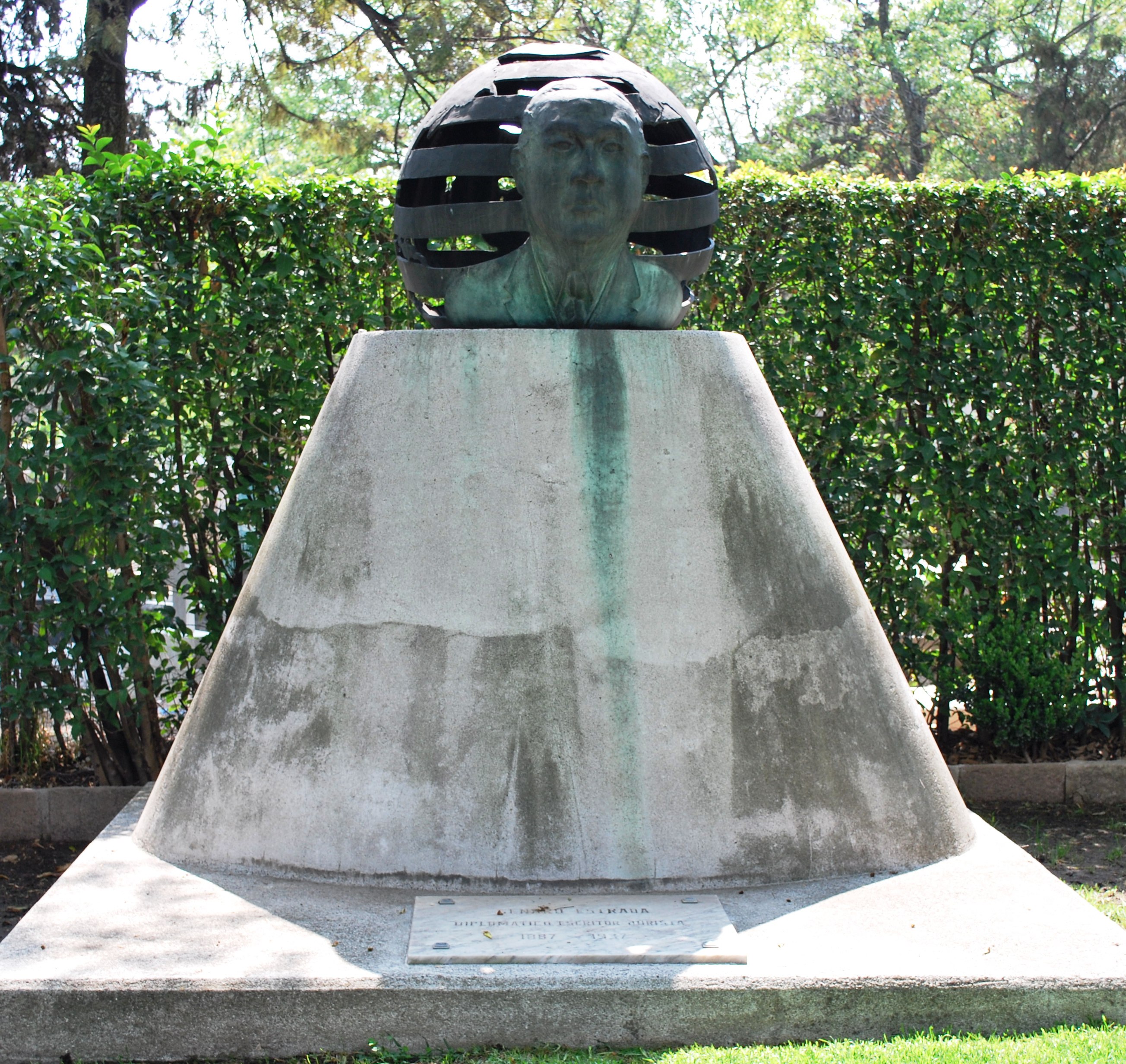Genaro Estrada on:
[Wikipedia]
[Google]
[Amazon]
 Genaro Estrada (June 2, 1887 – September 29, 1937) was a Mexican
Genaro Estrada (June 2, 1887 – September 29, 1937) was a Mexican
statesman
A statesman or stateswoman is a politician or a leader in an organization who has had a long and respected career at the national or international level, or in a given field.
Statesman or statesmen may also refer to:
Newspapers United States
...
, academic
An academy (Attic Greek: Ἀκαδήμεια; Koine Greek Ἀκαδημία) is an institution of tertiary education. The name traces back to Plato's school of philosophy, founded approximately 386 BC at Akademia, a sanctuary of Athena, the go ...
, and writer
A writer is a person who uses written words in different writing styles, genres and techniques to communicate ideas, to inspire feelings and emotions, or to entertain. Writers may develop different forms of writing such as novels, short sto ...
. He was Secretary of Foreign Affairs of Mexico between 1930 and 1932 and the architect of the Estrada Doctrine
The Estrada Doctrine (also known as La Doctrina Mexico, La Doctrina Mexicana and La Doctrina Ortiz Rubio) is Mexico's core foreign policy guideline since 1930; according to it, states should not formally announce the diplomatic recognition of forei ...
, which stated that the Mexican government would acknowledge any foreign government, no matter how it came into power. This doctrine would influence Mexican politics all throughout the 20th century.
Biography
Estrada was born inMazatlán
Mazatlán () is a city in the Mexican list of states of Mexico, state of Sinaloa. The city serves as the municipal seat for the surrounding , known as the Mazatlán Municipality. It is located on the Pacific Ocean, Pacific coast across from th ...
, Sinaloa
Sinaloa (), officially the (), is one of the 31 states which, along with Mexico City, compose the Federal Entities of Mexico. It is divided into 18 municipalities, and its capital city is Culiacán Rosales.
It is located in northwest Mexic ...
. He served as a journalist in Mazatlán early in life and moved to Mexico City
Mexico City is the capital city, capital and List of cities in Mexico, largest city of Mexico, as well as the List of North American cities by population, most populous city in North America. It is one of the most important cultural and finan ...
in 1912, where he was professor at the Escuela Nacional Preparatoria and entered the capital's cultural and political life. He became involved in government after the Mexican Revolution
The Mexican Revolution () was an extended sequence of armed regional conflicts in Mexico from 20 November 1910 to 1 December 1920. It has been called "the defining event of modern Mexican history". It saw the destruction of the Federal Army, its ...
. By the end of the 1920s he served as ambassador
An ambassador is an official envoy, especially a high-ranking diplomat who represents a state and is usually accredited to another sovereign state or to an international organization as the resident representative of their own government or so ...
to Spain and minister to Portugal and Turkey
Turkey, officially the Republic of Türkiye, is a country mainly located in Anatolia in West Asia, with a relatively small part called East Thrace in Southeast Europe. It borders the Black Sea to the north; Georgia (country), Georgia, Armen ...
. He later became professor at the National Autonomous University of Mexico
The National Autonomous University of Mexico (, UNAM) is a public university, public research university in Mexico. It has several campuses in Mexico City, and many others in various locations across Mexico, as well as a presence in nine countri ...
, where he founded the Academia Mexicana de la Historia
The Academia Mexicana de la Historia (''Mexican Academy of History'', also known by the acronym AMH), is a national academy in Mexico, which promotes history in Mexico.
History
While Antonio López de Santa Anna issued mandates to establish a Me ...
. He also published a novel, ''Pero Galín'' (1926), and four books of satirical
Satire is a genre of the visual arts, visual, literature, literary, and performing arts, usually in the form of fiction and less frequently Nonfiction, non-fiction, in which vices, follies, abuses, and shortcomings are held up to ridicule, ...
and political poetry. He died in Mexico City in 1937.
See also
*Estrada Doctrine
The Estrada Doctrine (also known as La Doctrina Mexico, La Doctrina Mexicana and La Doctrina Ortiz Rubio) is Mexico's core foreign policy guideline since 1930; according to it, states should not formally announce the diplomatic recognition of forei ...
References
* 1887 births 1937 deaths Academic staff of the National Autonomous University of Mexico 20th-century Mexican historians Mexican male novelists Mexican male poets Writers from Sinaloa People from Mazatlán Ambassadors of Mexico to Portugal Ambassadors of Mexico to Spain Ambassadors of Mexico to Turkey 20th-century Mexican poets 20th-century Mexican male writers Burials at the Panteón de Dolores {{Mexico-poet-stub